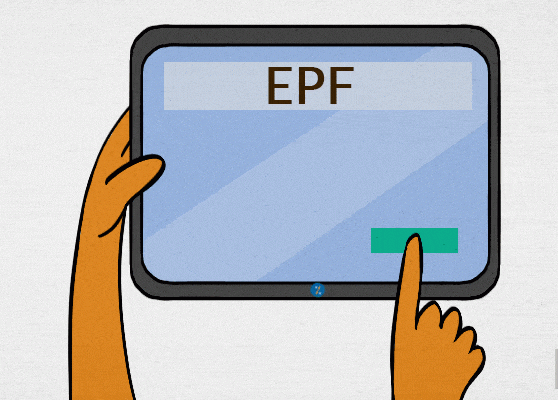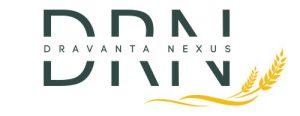A Pvt.Ltd Company Offers Limited Liability and Independent Legal Status.
EPF Registration is the process of enrolling an organization under the Employees’ Provident Fund scheme. It ensures retirement benefits, social security, and statutory compliance for employees.
- Trusted by 500+ Clients Worldwide with a 4.9★ Rating

The Employee Provident Fund (EPF) is a retirement savings scheme where both the employer and the employee equally contribute a small portion of the employee’s basic salary every month.
The savings earn interest, and the total amount can be withdrawn under certain conditions, such as retirement, unemployment, or medical emergencies.
This scheme is governed by the Employees’ Provident Fund and Miscellaneous Provisions Act, 1952, and is managed by the EPFO.
- Schemes Offered Under EPFO:
- Why is EPF Registration Important?
- Who Needs to Register for EPF?
- Benefits of EPF Registration:
- Documents Required for EPF Registration:
- EPF Registration Process for Employers:
- Conclusion
• Employees' Provident Funds Scheme 1952 (EPF)
• Employees' Pension Scheme 1995 (EPS)
• Employees' Deposit Linked Insurance Scheme 1976 (EDLI)
• Financial Security for Employees: Helps employees save for retirement, medical needs, and other long-term goals.
• Employer Responsibility: Any business with 20 or more employees is legally required to register for PF and contribute to the employee's fund.
• Tax Benefits: Contributions made to EPF are eligible for tax deductions under Section 80C of the Income Tax Act.
• Employee Benefits: Includes access to pension, life insurance under the Employee Deposit Linked Insurance (EDLI) scheme, and other helpful benefits.
• Employees: All employee's earning a basic salary up to ₹15,000 per month must be registered for EPF. Employees earning more than this can voluntarily opt for EPF registration.
• For Employees:
• Retirement Savings: Ensures that employees consistently save for future financial security.<,br> • Pension Scheme: Eligible employees also get pension benefits under the Employee Pension Scheme (EPS).
• Insurance Coverage: Provides life insurance under the Employee Deposit Linked Insurance (EDLI) scheme.
• Tax-Free Interest: The interest earned on PF contributions is exempt from tax.
• Partial Withdrawals: Employees can withdraw part of their PF for certain needs such as medical emergencies, education, or buying a house.
• For Employers:
• Boosts Employee Welfare: Contributing to employee savings increases job satisfaction.
• Compliance: Ensures that the company complies with legal requirements and avoids penalties.
• Tax Benefits: Employer contributions are also eligible for tax deductions.
• PAN Card of the company or business.
• Certificate of Incorporation or Partnership Deed.
• Proof of Business Address (utility bill, rental agreement).
• Employee Details (name, age, salary, date of joining).
• Digital Signature Certificate (DSC) of the employer.
• Company Bank Details for contribution payments.
• For Employee's, the required details include:
• Aadhaar Card or any other ID proof.
• PAN Card.
• Bank Account Details.
• Salary Information.
• Employer's Contribution to EPF: Employers are required to contribute 12% of the employee's basic salary to the Provident Fund. The contributions are divided as follows:
• 8.33% goes towards the Employee Pension Scheme (EPS).
• 3.67% goes towards the Employee Provident Fund (EPF).
• 0.5% goes to the Employee Deposit Linked Insurance (EDLI) scheme.
• EPF Compliance and Penalties: Employers must make timely contributions to avoid penalties, which can include:
• Fines: Late payments can result in fines ranging from ₹500 to ₹5000.
• Interest: Delayed contributions may incur interest at 12% per year.
• Legal Consequences: Failing to register or comply with EPF regulations can lead to legal action.
For assistance with EPF Registration, compliance, or generating UAN numbers for employees, Prahar Filing & Advisory can help make the process easy and stress-free. Contact us for smooth and efficient registration and compliance services.
Request A Callback
Trusted Legal Expertise,
Loved by Clients
Custom advisory for high-impact legal, financial, and corporate decisions

Testimonials
Trusted By Clients And Industry Experts
At Prahar Filing & Advisory, our clients’ success stories speak volumes. Discover how businesses across various industries have leveraged our expertise to achieve their goals. Read firsthand accounts of our commitment to excellence and the impact we've made in supporting their growth and compliance needs.


“Prahar Filing & Advisory has been instrumental in helping us scale compliantly. Their team is proactive, detail-oriented, and always available when we need strategic input. A true partner in our growth.”
Kislay Sharma
Director, Dravanta Nexus Private Limited


“As an IT Company, we needed fast and reliable compliance support. Prahar delivered with precision — from GST registration to advisory. Their tech-savvy approach and clear communication made all the difference.”
Dhrub Kr Karmkar
Director, Xspaceweb Private Limited
“I was new to tax filing and unsure about deductions. Prahar simplified everything, explained the process patiently, and helped me file with confidence. Their service is perfect for working professionals like me.”
Rahul Kumar
IT Employee

“Prahar Filing & Advisory took care of my store’s registration and tax setup without any hassle. Their team is courteous, efficient, and always ready to help. I recommend them to every small business owner.”
Prabhakar Mandal
Proprietor, Aradhya Hardware

“I run a small business and needed help with GST and licensing. Prahar’s team guided me step-by-step and made sure I understood every part of the process. They’re reliable, honest, and truly client-focused.”
Angad Kumar
Proprietor, Kunwar Enterprises

